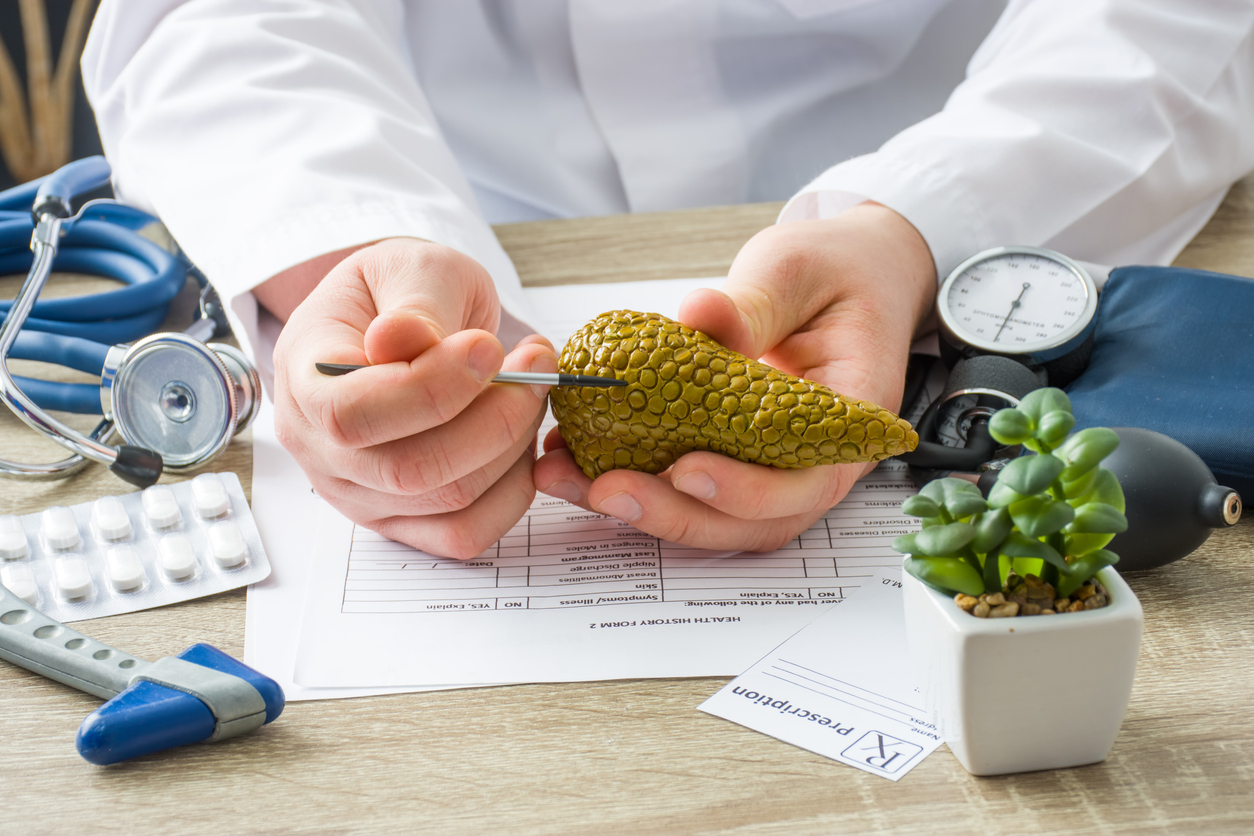2025-07-30
Pancreas + HCV: Risky gamble or new paradigm?
Gastroenterology and Hepatology Infectiology
By Ana Espino | Published on July 30, 2025 | 2 min read
#HCV #Hepatitis #Pancreas
Pancreatic transplantation remains an effective solution for patients with severe type 1 diabetes, but the number of available grafts is still insufficient. In response to this shortage, grafts from donors infected with the hepatitis C virus (HCV) represent an underutilized resource. Historically, transmission of the virus to seronegative recipients (D+/R−) was prohibitive due to infectious risks and the limitations of treatments available at the time (interferon ± ribavirin). The introduction of direct-acting antivirals (DAAs), effective across all genotypes and well tolerated, has changed this perception. In liver and kidney transplants, the outcomes of D+/R− grafts under DAA treatment are very encouraging. However, data on D+/R− pancreatic transplantation remain scarce.
In this context, this study was initiated to explore the available clinical data on pancreatic transplantation from HCV-viremic donors to seronegative recipients and to evaluate the efficacy of prophylactic or reactive DAA treatment regimens.
Seven studies published between 2020 and 2025 were analyzed, encompassing 22 patients who received pancreatic grafts from HCV-viremic donors to seronegative recipients (D+/R−), either as a stand-alone procedure or combined with a kidney transplant. The patients received various direct-acting antiviral (DAA) protocols, administered either prophylactically—before or immediately after transplantation—or reactively, after confirmation of viral infection.
The study results are particularly encouraging. All patients achieved a sustained virologic response at 12 weeks (SVR12), regardless of the antiviral regimen used. Graft function, whether pancreatic or renal, was preserved, and no cases of acute pancreatic rejection were reported. DAA treatments were well tolerated, including in patients under strong immunosuppression. Short prophylactic protocols (7 to 8 days) proved to be as effective as standard 12-week reactive strategies. Only one case of initial virologic failure was reported, related to an antiviral regimen that was inappropriate for the viral genotype; this was successfully corrected with a 16-week retreatment.
Pancreatic transplantation is an effective therapeutic option but is limited by the shortage of grafts. The use of pancreases from HCV-viremic donors, once excluded, is now a viable option thanks to direct-acting antivirals.
The main challenge lies in ensuring the safety of this approach for seronegative recipients by defining appropriate antiviral protocols and rigorous post-transplant follow-up.
This review demonstrates that D+/R− pancreatic transplants, when combined with properly managed antiviral treatment, allow complete eradication of the virus while preserving graft function, with no major complications.
The results are very promising. In the long term, integrating HCV-positive grafts into clinical practice could significantly reduce waiting times. This, however, requires the development of clear recommendations, appropriate patient selection, and an individualized approach based on virological and immunological status.
About the author – Ana Espino
As a scientific writer, Ana is passionate about bridging the gap between research and real-world impact. With expertise in immunology, virology, oncology, and clinical studies, she makes complex science clear and accessible. Her mission: to accelerate knowledge sharing and empower evidence-based decisions through impactful communication.
#HCV #Hepatitis #Pancreas
Pancreatic transplantation remains an effective solution for patients with severe type 1 diabetes, but the number of available grafts is still insufficient. In response to this shortage, grafts from donors infected with the hepatitis C virus (HCV) represent an underutilized resource. Historically, transmission of the virus to seronegative recipients (D+/R−) was prohibitive due to infectious risks and the limitations of treatments available at the time (interferon ± ribavirin). The introduction of direct-acting antivirals (DAAs), effective across all genotypes and well tolerated, has changed this perception. In liver and kidney transplants, the outcomes of D+/R− grafts under DAA treatment are very encouraging. However, data on D+/R− pancreatic transplantation remain scarce.
In this context, this study was initiated to explore the available clinical data on pancreatic transplantation from HCV-viremic donors to seronegative recipients and to evaluate the efficacy of prophylactic or reactive DAA treatment regimens.
Transplanting an infected pancreas… could it be safe?
Seven studies published between 2020 and 2025 were analyzed, encompassing 22 patients who received pancreatic grafts from HCV-viremic donors to seronegative recipients (D+/R−), either as a stand-alone procedure or combined with a kidney transplant. The patients received various direct-acting antiviral (DAA) protocols, administered either prophylactically—before or immediately after transplantation—or reactively, after confirmation of viral infection.
The study results are particularly encouraging. All patients achieved a sustained virologic response at 12 weeks (SVR12), regardless of the antiviral regimen used. Graft function, whether pancreatic or renal, was preserved, and no cases of acute pancreatic rejection were reported. DAA treatments were well tolerated, including in patients under strong immunosuppression. Short prophylactic protocols (7 to 8 days) proved to be as effective as standard 12-week reactive strategies. Only one case of initial virologic failure was reported, related to an antiviral regimen that was inappropriate for the viral genotype; this was successfully corrected with a 16-week retreatment.
Could the virus open new doors?
Pancreatic transplantation is an effective therapeutic option but is limited by the shortage of grafts. The use of pancreases from HCV-viremic donors, once excluded, is now a viable option thanks to direct-acting antivirals.
The main challenge lies in ensuring the safety of this approach for seronegative recipients by defining appropriate antiviral protocols and rigorous post-transplant follow-up.
This review demonstrates that D+/R− pancreatic transplants, when combined with properly managed antiviral treatment, allow complete eradication of the virus while preserving graft function, with no major complications.
The results are very promising. In the long term, integrating HCV-positive grafts into clinical practice could significantly reduce waiting times. This, however, requires the development of clear recommendations, appropriate patient selection, and an individualized approach based on virological and immunological status.
Read next: Hepatitis C: 5-minute test, accurate results?
About the author – Ana Espino
PhD in Immunology, specialized in Virology

Last press reviews
Parental alcohol intoxication: the hidden impact on children’s mental health

By Carolina Lima | Published on January 19, 2026 | 3 min read
Obesity: when the kidneys become overwhelmed

By Ana Espino | Published on January 16, 2026 | 3 min read...
